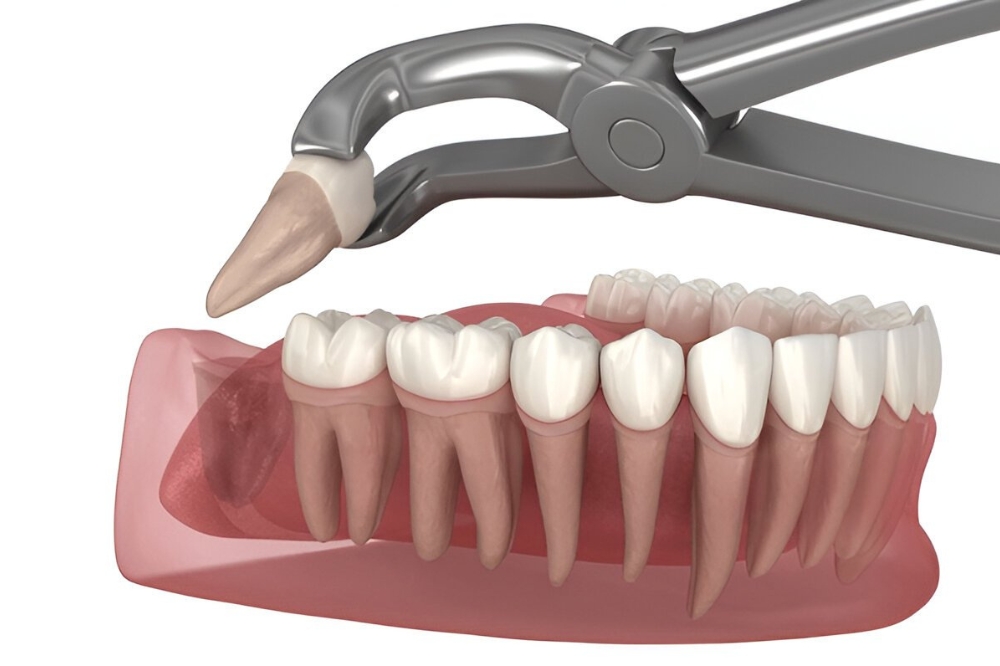Wisdom teeth removal is a routine dental operation. Most individuals have to get their wisdom teeth removed since wisdom teeth may lead to pain, crowding, or infection. If you wonder what happens in the process, this guide will make you better understand what to anticipate. Whether you are seeking wisdom teeth removal near you or a nearby dentist, you should learn how the process occurs and what you should prepare yourself for.
Why Wisdom Teeth Need to Be Removed
Wisdom teeth, also called third molars, usually appear between the ages of 17 and 25. Sometimes these teeth grow in straight and healthy, but often they can cause problems. Dentists may recommend the removal of wisdom teeth:
- Causes pain or swelling in the gums.
- Grow in at an angle and push against other teeth.
- Increase the risk of infection or cavities.
- Cause cysts or damage to nearby teeth.
Preparing for Wisdom Teeth Removal
Before your surgery, your dentist will evaluate your mouth. This typically involves:
- Dental X-rays: To visualize the location of your wisdom teeth.
- Medical History: To know your health and any medications you take.
- Discussion of Anesthesia: You can receive local anesthesia, sedation, or general anesthesia based on your situation.
Your dentist will also provide instructions to be followed before the surgery. These can include:
- Don’t eat or drink for a few hours prior to surgery.
- Organize having someone take you home if you are being sedated.
- Take any medications that are prescribed if advised.
The Extraction Process
The wisdom teeth removal in Waterloo process can vary depending on how complicated your case is. The majority of wisdom teeth extractions last from 30 to 60 minutes. Here’s a basic idea of what generally happens
- Anesthesia: To numb the region of your teeth, your dentist will administer a local anaesthetic. Whether sedation or general anesthesia should be planned, you will be asleep during the procedure.
- Making an Incision (if needed): A tooth that is impacted or trapped beneath the gum tissue will need to be released with a small incision into the gum over the tooth.
- Extraction: The tooth may be sectioned in such a way that its removal is safer and easier.
- Cleaning the Area: The region should be thoroughly cleaned, and debris and any other hindrances removed after the extraction of the tooth.
- Stitching, If Required: The sockets that do require stitching will generally have those stitches dissolve on their own.
- Gauze Placement: After the wound has been closed, gauze can be placed upon the area to help control bleeding and allow for the formation of a clot.
Here is a simple table showing the types of anesthesia used
|
Type of Anesthesia |
What to Expect |
Typical Use |
|
Local Anesthesia |
Numbs only the area around the tooth |
Simple extractions |
|
Sedation |
You are relaxed and may sleep lightly |
More complicated extractions |
|
General Anesthesia |
You are completely asleep |
Multiple or difficult extractions |
Recovery After Wisdom Teeth Removal
Recovery is a critical aspect of the process. Here is what you can anticipate
- Bleeding: There may be some bleeding for a few hours. Bite on gauze to manage it.
- Pain and Swelling: Pain and swelling are normal for 2–3 days. Your dentist may give you pain medication.
- Eating: Eat soft foods like yogurt, soup, and mashed potatoes. Avoid hard, crunchy, or hot foods.
- Oral Care: Gently rinse your mouth with warm salt water after 24 hours. Avoid brushing the extraction site for the first day.
- Rest: Rest and avoid heavy exercise for a few days.
Most individuals improve within 3–5 days, but complete recovery takes several weeks.
Signs to Watch After Surgery
It is important to contact a dental expert as soon as you begin to experience any of the following symptoms.
- Increasing or intense pain.
- Heavy or prolonged bleeding.
- After 2 -3 days, swelling becomes more severe.
- Fever or infection symptoms.
Tips for a Smooth Recovery
- Adhere to all the dentist’s directions.
- Use the medicines as advised.
- When resting, keep the head at a higher level.
- Refrain from smoking and drinking alcohol during the recovery period.
- Attend follow-ups (as necessary) at the dental clinic in Waterloo.
Finding a Dentist for Wisdom Teeth Removal
You would want your wisdom teeth extracted somewhere close to you, and in this case, find a good dentist near you. An experienced dentist will talk to you about whether or not you need to have your teeth removed and how it works and provide you with safe extraction and ensure smooth recovery. One should always seek the services of an experienced dentist to extract the wisdom teeth since it minimizes the risk and ensures a good healing process.
Get Comfortable Wisdom Teeth Extraction at Harmony Dental Care!
At Harmony Dental Care, we ensure the utmost safety and comfort during wisdom teeth extractions for patients. Our dentist in Waterloo applies modern dental techniques to minimize discomfort as well as pain during the procedure.

